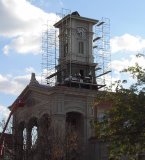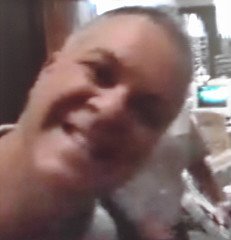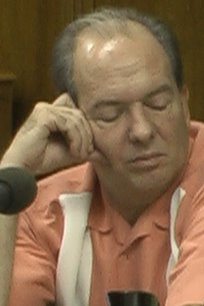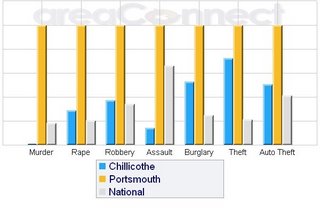One of the problems both cities are trying to deal with is what to do with the older buildings that house their city governments. The decision both city governments have to make is whether to renovate their present city building, convert another building, or build a new building from scratch. Because this issue is so timely and so important, I will devote a whole article to it in my next posting.
Differences
If these are some of the similarities between Portsmouth Chillicothe Portsmouth Chillicothe Portsmouth Chillicothe Scioto County Ohio Ross County Ohio Ross County Scioto was about 1.5 above average. Studies have shown how crime, spousal abuse, divorce, and suicide rates rise alarmingly with each percentage point increase in the unemployment rate, which may explain why the social fabric in Portsmouth Portsmouth Detroit Portsmouth
 Call it architectural consciousness, call it respect for tradition, call it whatever you want.
Call it architectural consciousness, call it respect for tradition, call it whatever you want. Comparing Crime in Portsmouth and Chillicothe
Even more than family income and unemployment statistics, even more than minor league baseball, even more than architecture, the contrasting crime rates in the two cities show that though they are only an hour’s drive from each other, Portsmouth and Chillicothe are otherwise worlds apart. The following chart shows how they compare with each other and with the nation in terms of crime:
Not surprisingly, given Portsmouth Portsmouth Portsmouth Portsmouth Portsmouth
Tripping Out
Several months ago, on a beautiful summer day, Thursday July 6th to be exact, three senior citizens from Portsmouth Chillicothe Portsmouth Portsmouth
We were going to Chillicothe Portsmouth Chillicothe Chillicothe Chillicothe Columbus
We hadn’t arranged any meetings in Chillicothe
From the Chamber of Commerce, we went to the Chillicothe Administration Building Paint St Portsmouth Municipal Building Administration Building Portsmouth Municipal Building Chillicothe Administration Building
Chillicothe Mayor
 The openness about budget matters was a big surprise. We were used to the budget being considered a secret, like the formula for Coke or for a Masonic ritual. A copy of the
The openness about budget matters was a big surprise. We were used to the budget being considered a secret, like the formula for Coke or for a Masonic ritual. A copy of the I figured I would see the Chillicothe City Council in action for myself, so I drove up for the Monday September 25th meeting. Austin Portsmouth Portsmouth  Ann Aeh, who was once officially found guilty by the state of mutilating recall petitions. The little get-togethers in her office beforehand are the real meetings, where deals are struck and strategies devised. Only councilman Bob Mollette will not take part in these closed-door shenanigans. When videographer Joe Ferguson opened the closed door and tried to take footage of one of these rump meetings, councilman Marty Mohr defiantly mugged for Joe’s camera (see insert), with Council President Howard Baughman smirking in the background, providing us with a candid, unscripted example of the real attitude of most
Ann Aeh, who was once officially found guilty by the state of mutilating recall petitions. The little get-togethers in her office beforehand are the real meetings, where deals are struck and strategies devised. Only councilman Bob Mollette will not take part in these closed-door shenanigans. When videographer Joe Ferguson opened the closed door and tried to take footage of one of these rump meetings, councilman Marty Mohr defiantly mugged for Joe’s camera (see insert), with Council President Howard Baughman smirking in the background, providing us with a candid, unscripted example of the real attitude of most Portsmouth
 Ann Aeh, who was once officially found guilty by the state of mutilating recall petitions. The little get-togethers in her office beforehand are the real meetings, where deals are struck and strategies devised. Only councilman Bob Mollette will not take part in these closed-door shenanigans. When videographer Joe Ferguson opened the closed door and tried to take footage of one of these rump meetings, councilman Marty Mohr defiantly mugged for Joe’s camera (see insert), with Council President Howard Baughman smirking in the background, providing us with a candid, unscripted example of the real attitude of most
Ann Aeh, who was once officially found guilty by the state of mutilating recall petitions. The little get-togethers in her office beforehand are the real meetings, where deals are struck and strategies devised. Only councilman Bob Mollette will not take part in these closed-door shenanigans. When videographer Joe Ferguson opened the closed door and tried to take footage of one of these rump meetings, councilman Marty Mohr defiantly mugged for Joe’s camera (see insert), with Council President Howard Baughman smirking in the background, providing us with a candid, unscripted example of the real attitude of most “Take Me to Your Leader”
 I asked Austin Leedom recently if he had to sum up his overall impression of
I asked Austin Leedom recently if he had to sum up his overall impression of What my recent visits to Chillicothe Portsmouth Washington D.C. the country. Chillicothe Chillicothe Portsmouth Chillicothe Chillicothe Portsmouth
